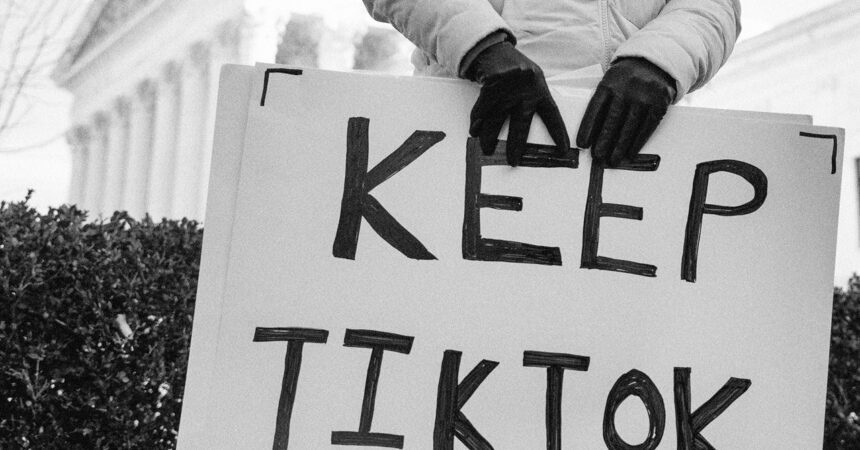The TikTok Dilemma: Balancing National Security and Economic Opportunity
In recent months, the Biden administration’s efforts to implement a nationwide ban on TikTok have ignited heated debates surrounding national security, economic impact, and the future of social media for creators. With the app’s ties to the Chinese government raising concerns about data privacy and potential surveillance, supporters of the ban argue that closing off vulnerabilities is essential for American safety. On the flip side, creators and small business owners who rely on TikTok as a vital source of income argue that the repercussions of such a ban could cripple their livelihoods.
The National Security Angle
Elizabeth B. Prelogar, the solicitor general of the U.S., highlighted the government’s concerns during a recent legal argument supporting the ban, emphasizing the risk posed by foreign adversaries like the Chinese government potentially spying on American citizens. The argument is that personal data collected through the app could be exploited in ways that threaten national security. As the court weighs the implications of a possible ban, the urgency is heightened by a timeline that requires swift judicial action. Decisions made now could have widespread effects on the way social media operates in the U.S. going forward.
The Creator Economy
For many content creators, TikTok has become more than just a platform for sharing short videos; it represents a significant source of income. As creators like Dunn explain, their financial realities are deeply intertwined with the continued availability of the app. Participating in TikTok’s creator rewards program, where users can earn money based on their follower count and engagement, is crucial for many. Dunn shared that he averaged five-figure months in 2024, revealing how devastating the loss of the platform would be, not only for him but for countless others who depend on TikTok for their livelihood.
TikTok Shop: An E-commerce Powerhouse
Launched in September 2023, TikTok Shop has proven to be a transformative feature for small business owners. By allowing users to sell directly through the app, TikTok has positioned itself as a competitor to e-commerce giants like Amazon. Reports indicate that daily U.S. sales through TikTok Shop have exceeded $7 million, while Shopify notes that 12 percent of TikTok Shops are U.S.-based. For entrepreneurs like Renee McClintock, TikTok has become a lucrative marketplace. McClintock’s viral success, wherein she revealed earnings of $4,764.63 in just one week, illustrates the platform’s potential to generate substantial revenue for small businesses. With her gross merchandise volume climbing to $600,000 through the affiliate program, it’s evident that the app serves as a lifeline for many.
The Broader Landscape of Social Media Monetization
While other platforms like YouTube, Instagram, and Twitch offer monetization routes, TikTok has carved out a unique niche. It combines viral video content with e-commerce capabilities, creating an ecosystem that is especially friendly to creators and small businesses. Jon Selman, a vice president of influencer marketing at BenLabs, noted that TikTok stands out among its competitors due to this integrated approach that allows creators to monetize their presence in ways that often go beyond what other platforms can offer.
A Critical Crossroads
As discussions around a TikTok ban intensify, it’s crucial to weigh the implications not just for national security, but also for the burgeoning creator economy that has flourished on the platform. Respecting privacy and ensuring national security is undoubtedly important, but at what cost? The potential eradication of an avenue that has enabled millions to express themselves, grow businesses, and support their families must be carefully weighed against the perceived risks.
The legal battle surrounding TikTok highlights a complex interplay between protecting individual users, managing national security interests, and encouraging economic innovation. As the court approaches a pivotal decision, the outcome will undoubtedly shape the landscape of social media and the creator economy for years to come.
The voices of creators like Dunn and McClintock remind us that behind the headlines and policy debates, there lie real lives and livelihoods impacted by these decisions. As such, this ongoing story is about more than just an app; it is about the future of work, creativity, and economic opportunity in the digital age.










